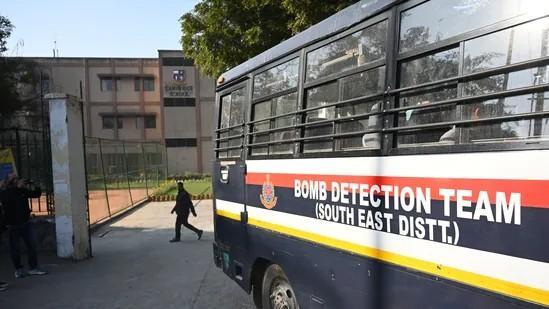 |
|
The recent wave of bomb threats targeting schools in Delhi has concluded with a surprising revelation: the perpetrators were, in fact, students of the very institutions they targeted. This revelation underscores a complex interplay of factors, from academic pressures and anxieties to a perhaps naive understanding of the gravity of such actions. The Delhi Police investigation, meticulous in its approach, has unveiled a pattern of calculated, albeit misguided, attempts to manipulate the school environment for personal gain. In one instance, two brothers, overwhelmed by the impending pressure of exams for which they felt unprepared, resorted to sending threatening emails in a desperate bid for postponement. This act, while seemingly borne of panic and a lack of coping mechanisms, highlights a crucial issue within the education system: the immense pressure placed upon students to succeed academically, often at the expense of their mental and emotional well-being. The pressure to perform, the constant competition, and the fear of failure can lead to impulsive decisions, and in this case, a severe misjudgment of the consequences.
The second case presents a slightly different narrative, yet equally revealing of the underlying anxieties within the student body. A student, facing the prospect of attending in-person classes, orchestrated a bomb threat in an attempt to force the school to transition to online learning. This action reveals a distinct dissatisfaction with the current educational model and a preference for the perceived flexibility and comfort of online instruction. While this may seem like a relatively minor disruption, it points to a broader issue regarding student engagement and satisfaction with the educational environment. It highlights a potential disconnect between the needs and preferences of students and the institutional policies and practices of the schools. Are schools adequately addressing the evolving needs of students in the digital age? Are there sufficient support systems in place to help students navigate academic pressures and manage their stress levels effectively? These are critical questions that demand careful consideration in the wake of these events.
The implications of these events extend beyond the immediate consequences of the disrupted school schedules and the emotional distress caused to students, staff, and parents. The actions of these students serve as a stark reminder of the importance of fostering open communication and creating a supportive learning environment within schools. Effective communication channels can facilitate the identification of students who may be struggling with academic pressures or personal anxieties. Moreover, comprehensive mental health support systems are crucial to help students develop healthy coping mechanisms and address underlying emotional distress. The presence of trained counselors and easily accessible mental health resources can play a vital role in preventing similar incidents from occurring in the future. Schools must prioritize the overall well-being of their students, moving beyond the narrow focus on academic achievements to embrace a holistic approach that fosters a supportive and inclusive learning environment.
Furthermore, the legal ramifications of these actions cannot be overlooked. While the students' motivations may have stemmed from a place of desperation or misguided thinking, the consequences of their actions are significant. The severity of the charges and subsequent penalties serve as a powerful deterrent against future attempts to disrupt school operations through false bomb threats. These cases underscore the importance of educating students about the legal and ethical implications of their actions, emphasizing the potential repercussions of such behavior. The legal system, while acting as a deterrent, also offers an opportunity for rehabilitation and restorative justice. Through appropriate interventions, the justice system can work to address the underlying issues that contributed to the students' actions while holding them accountable for their choices. This balanced approach is crucial to ensuring that similar incidents are prevented in the future and that students learn from their mistakes without facing disproportionate consequences.
In conclusion, the revelation that students were behind the recent bomb threats in Delhi schools is a multifaceted issue that requires a comprehensive response. It calls for a renewed focus on student well-being, improved communication channels within schools, readily accessible mental health support systems, and effective education about the legal and ethical implications of such actions. A holistic approach, addressing both the immediate consequences and the underlying causes, is essential to prevent similar incidents and foster a safer and more supportive learning environment for all students.
